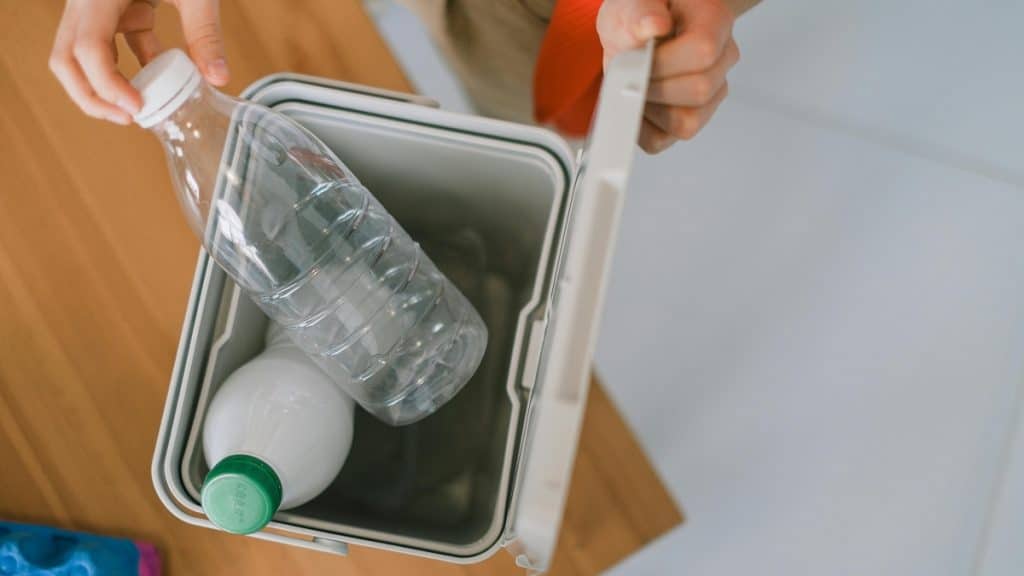Managing household waste is crucial to maintaining a clean and safe living environment. However, not all waste can be simply thrown into the trash can. Hazardous household waste, including batteries, paints, chemicals, and electronic devices, requires special handling to ensure safety and environmental protection.
Improper disposal of these materials can lead to significant health risks and environmental damage. Therefore, understanding how to safely dispose of hazardous household waste is essential for every homeowner. If you’re looking for a reliable waste management service, consider Prattville waste solutions for comprehensive assistance.
Understanding Hazardous Household Waste
HHW is unwanted and unused products found within and around households that contain chemicals that may be unsafe for humans. This can extend to detergents, rat poison, paint thinners, gasoline, and electrical equipment. All of them, however, present a different level of risk, and as such, their disposal procedures are different.
For instance, chemicals can contaminate the ground and water, batteries emit toxic materials if not properly assembled, and electronics discharge hazardous elements if improperly disposed of.
Identifying Hazardous Waste
The first measure in the safe disposal of HHW involves identifying what should be categorized as HHW in one’s home. Everyday household products often contain hazardous materials, such as:
- Batteries: They contain mercury, lead, cadmium, nickel, and other metals, and they can be toxic if they leak. They are also used in car batteries.
- Paints and Solvents: Some contain volatile organic compounds (VOCs), which can cause poor air quality and impact health.
- Pesticides and Herbicides: These chemicals are harmful to humans, animals, and plants if not properly managed.
- Electronics: Many gadgets and equipment commonly used daily, including computers and smartphones, contain toxic substances, including lead, mercury, and cadmium.
Safe Disposal Methods
- Recycling: Numerous hazardous materials can be recycled. Batteries, electronics, and, in some cases, even chemical substances can be taken back to recycling facilities. Locally, one should contact the recycling programs to determine how much they accept HHW.
- Special Collection Events: Most residents of many communities have special collection events for HHW so that they can dispose of these items appropriately. Such events are usually arranged by the local authorities or agencies that deal with waste disposal.
- Hazardous Waste Facilities: Some places have fixed centers for HMW collection where you can deposit your products at any time of the year. These facilities have standard and adequate supplies, tools, and means to deal with and clear hazardous waste.
- Retail Take-Back Programs: Other programs include retail take-back programs for items such as batteries and electronics. These programs ensure that dangerous commodities end up in the right recycle bin or waste basket.
Preparing Hazardous Waste for Disposal
However, the following are helpful tips that could be of great importance when disposing of your hazardous waste at a disposal site or during a special event. All articles must be packaged in their original packaging and should be clearly marked. Flammable, explosive, or reactive materials should not be combined in the same container since they may react violently when moistened.
Tightly secure your containers and keep them away until you can get rid of them properly. If you are in doubt about how to dispose of a specific category of waste, you can always seek advice from your regional waste disposal body.
Resource and Welfare Benefits
Disposing of hazardous household wastes plays a crucial role in bringing about positive changes to the environment and health standards. It helps avoid the pollution of the soil and water sources, which is likely to happen if toxic wastes are improperly disposed of. Such contamination can cause long-term pollution of the environment and pose potential dangers to the lives of both humans and animals.
Proper disposal of hazardous waste ensures that these materials do not leach harmful chemicals into the soil. These chemicals can then enter water supplies and food chains, leading to serious health problems for humans and wildlife. For example, chemicals like mercury and lead can accumulate in the bodies of animals and humans, causing chronic health issues, including neurological damage and developmental problems in children.
Moreover, correct disposal practices reduce the risk of environmental disasters. Improper storage or disposal of hazardous materials can lead to chemical leaks, which can contaminate large areas and require costly cleanup operations. Fires and explosions are also a significant risk when flammable or reactive substances are not appropriately managed. These incidents can cause extensive damage to property, harm to individuals, and strain on emergency response services.
Proper disposal practices also support the recycling and recovery of valuable resources. Many hazardous materials, such as certain types of batteries and electronics, contain metals and other components that can be reclaimed and reused. This reduces the need for mining and processing new raw materials, conserving natural resources, and reducing the environmental impact of manufacturing processes.
Conclusion
Managing and disposing of Hazardous household waste is a fundamental task that every homeowner should handle. Sustainable waste disposal methods entail identifying hazardous items, using the right disposal techniques, and appropriately preparing waste to protect your health, community, and environment. In any case, there are many opportunities to dispose of these substances responsibly, for example, through recycling, special collection, or waste facilities for hazardous substances.
Disposing of hazardous household waste in the right manner is a responsibility to the planet, short of endangering one’s own life. If you are still in doubt about the proper disposal methods for the wastes that your household generates, Prattville Waste Solutions can help you get the assistance that you require to dispose of them properly.

